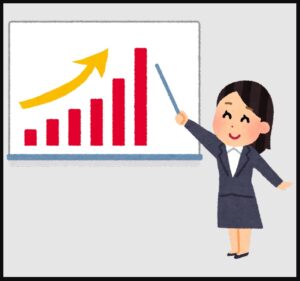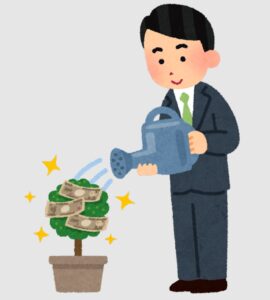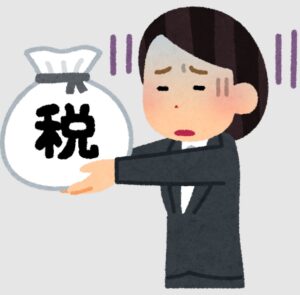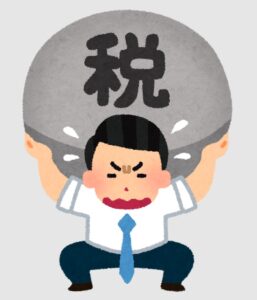管理人オススメコンテンツはこちら
「ステージに立ってない|投資の夢より借金の現実」
〜前回のつづき〜
●利回りは“かも”、金利は“必ず”~投資は希望、借金は現実~

・投資利回り
・借金の金利
の大きな違いは
色々あります。
投資の場合は
不確実なんですよね。
平均利回り7%と言っても
毎年確実に7%
儲かる訳じゃないんですよ。
プラス30%の年もあれば
マイナス30%の年もある。
トータルでならしていったら
大体平均で6〜7%
アメリカの
インデックス投資なんかで
出てるんですよね。
それに引き換え
借金の金利というのは
毎年必ず掛かるんですよね。
つまり確定でかかる。
ここが大きな違いなんですよね。
違いとして
まず覚えておいて欲しいですね。
金利の場合はそうですよね?
・借金
・クレジット
・ローン
金利は毎年絶対かかる訳ですよね。

「今年2%でいいです。
来年は景気がいいので
7%下さい♪」
とか
そういう話ではない。
毎年必ずかかります。
●投資の前に、借金という“穴”を埋めろ~土台が沈む家に、未来は建たない~

金利が高いのであれば
利息の負担が大きいから
借金返済が優先です。
・カードローン
・リボ払い
なんかは
100万円借りてて
10%の金利を支払おうとすると
毎年10万円金利分だけで
支払う事になる。

なかなか元本が減らないんですよね。
金利だけで
年間10万円も支払うという事は
毎月8千円以上ですよね。
毎月8千円
払わなければならないという事は
税引き後で8千円なので
給料を1万円ぐらい
上げないといけないんですよ。
毎月1万円のアップって
大変じゃないですか?
だから
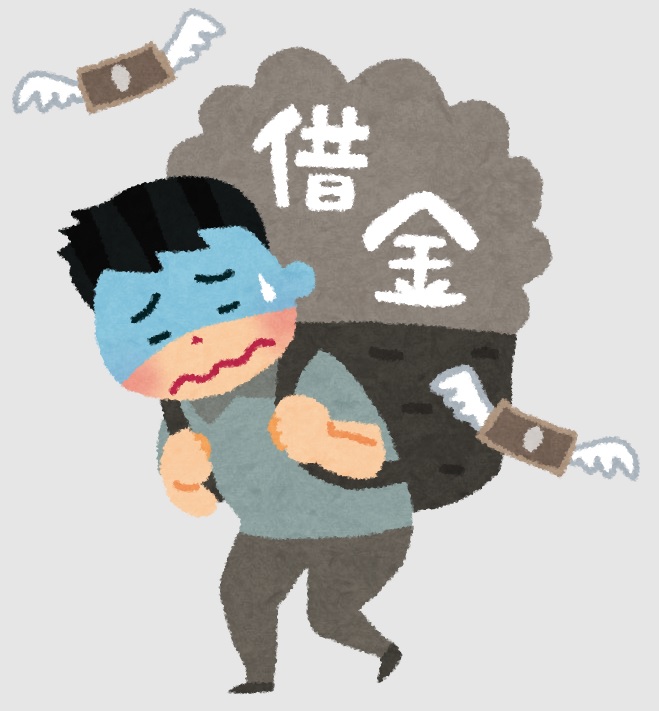
借金返済が優先なんですよね。
では
投資に回した方がいいか
という話なんですけど
年利10%投資利回りで
毎年確実に出せるかどうかで言うと

ほぼ不可能と
考えた方がいいんですよね。
これは
今までのお話しを読んでもらえれば
わかるかと思います。
カードローンは金利が高い。
10%以上取られてると思うので
投資よりも借金返済が優先です。

まだ投資をする
ステージに立ってないという事です。
貯蓄体質を作るというのは
投資の最低限の条件なので
まずは借金をキッチリ返済していき
投資が出来る体制を作るという事です。
〜〜〜つづく〜〜〜
Special Thanks college president Ryo.

●おまけ
≪≪perplexityちゃんによる文章まとめ≫≫
投資の利回りと借金の金利には大きな違いがあります。
投資の利回りはあくまで期待値であり、毎年必ず同じ利益が得られるわけではありません。
年によって大きく増減し、平均して6〜7%程度になることが多いですが、マイナスになる年もあります。
一方、借金の金利は毎年必ず発生し、確実に支払わなければなりません。
特にカードローンやリボ払いなどの高金利の借金は、利息負担が大きく、元本がなかなか減らないため、返済が優先されます。
高い利回りの投資で借金の金利を上回ることは現実的に難しいため、まずは借金をきちんと返済し、投資ができる健全な資金体質を整えることが重要です。
[1] https://wealth.ebisu-fudousan.com/investment_trust/892/
[2] https://www.jpx.co.jp/markets/statistics-equities/misc/03.html
[3] https://www.boj.or.jp/statistics/outline/note/notest2.htm
[4] https://www.pictet.co.jp/basics-of-asset-management/practical-basic-knowledge/risk/20160628.html
[5] https://market.jsda.or.jp/shijyo/saiken/baibai/baisanchi/index.html
[6] https://www.toushin.or.jp/statistics/statistics/index.html
≪≪Chat-GPTくんによる英訳≫≫
~Continued from last time~
【Returns are maybe, interest is certain — Investing is hope, debt is reality】
There are several important differences between:
Investment returns
Debt interest
Let’s start with the key one: uncertainty.
With investments, nothing is guaranteed.
Even if the average return is said to be 7% per year, that doesn’t mean you earn 7% every single year.
Some years you might see +30%, and in others, -30%.
When you smooth out the ups and downs over the long term, it tends to average around 6–7%.
That’s what U.S. index investing typically shows.
—
In contrast, interest on debt is guaranteed.
It’s charged every single year, without fail.
This is a huge difference — and one you absolutely must understand.
Interest on debt, credit cards, and loans doesn’t fluctuate with the economy.
> “How about just 2% this year?
> The economy’s great, so next year I’ll give you 7%!”
Nope. That’s not how it works.
You pay it. Every year. Period.
—
【Before you invest, fill the hole called debt — You can’t build a future on a sinking foundation】
If the interest rate on your debt is high, your priority should be paying it down, not investing.
Take things like:
Credit card loans
Revolving payment plans (e.g. “Rebo-barai” in Japan)
Let’s say you borrowed 1 million yen at 10% interest.
That’s 100,000 yen per year — just in interest.
That doesn’t even touch the principal.
Which means, over 8,000 yen every month just to cover interest.
And because that’s post-tax money, you’d need to increase your salary by about 10,000 yen/month just to keep up.
Getting a 10,000 yen/month raise isn’t easy, is it?
—
That’s why paying off debt comes first.
Now you might ask:
“But wouldn’t it be better to invest that money instead?”
Let’s be honest — getting a guaranteed 10% annual return from investing is almost impossible.
You’ve probably realized this if you’ve read up to this point.
Especially with credit card loans, where the interest rate is often over 10%,
paying off debt is more urgent than investing.
If you’re still carrying high-interest debt,
you’re not ready to invest yet.
Building a habit of saving is the bare minimum requirement for investing.
So first, focus on eliminating debt and creating a solid financial base.
Only then should you step into the world of investing.
Special Thanks OpenAI and Perplexity AI, Inc

